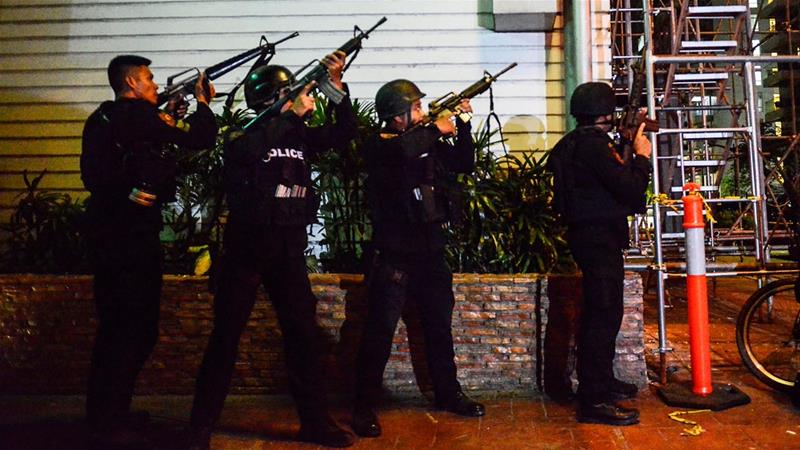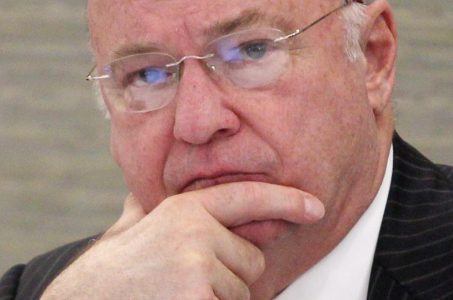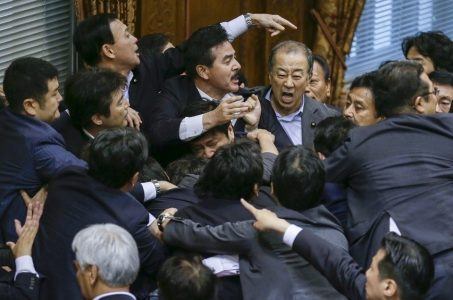Philippines Casino Proposed Entry Fee Aimed at Deterring Attackers Could Deter Business More Often
Posted on: June 12, 2017, 03:55h.
Last updated on: June 12, 2017, 03:58h.
A plan to impose an entry fee for all casinos in the Philippines would have a detrimental effect on the sector’s thriving mass market, analysts for investment banking group Morgan Stanley said on Monday. The opinion was issued following the introduction of a bill on Friday in the Philippine House of Representatives.

Rodolfo Albano III, a member of the House, introduced a bill that proposes charging all casino customers in the his country PHP3000 ($61) on entry.
Resorts World Manila Attack Impetus
The legislation comes in the wake of an assault by a lone gunman on Resorts World Manila that left 36 dead, including both gamblers and employees. It follows a week of recriminations in the Philippines House and Senate which largely blamed Resorts World and the firm that supplied its security for the deaths.
Also on Friday, the casino’s license to operate was suspended by the country’s gaming regulator PAGCOR, citing “serious security lapses” made by the casino.
Albano says his bill would “strengthen regulation of the participation or engagement of citizens in casino gambling by ensuring that those who enter casinos and similar gaming establishments have the financial resources to engage in gambling.”
The Resorts World attacker, Jessie Javier Carlos, who caused the deaths by setting fire to gaming tables after dousing them with gasoline, has been identified post-mortem as a problem gambler with a grudge against the casino, hundreds of thousands in debt, and no job or prospects for one.
Impact on Area Gambling
Morgan Stanley analysts Alex Poon and Praveen Choudhary noted that the entry fee plan would hurt the “grind mass” segment, a term referring to the lower end of the mass market, and customers who bring their families along.
“Filipino gamblers view gambling more as an entertainment compared to Chinese gamblers in Macau,” the analysts asserted.
The June 2 rampage cast a shadow over a casino sector that was basking in a period of strong growth, bolstered by Philippine President Rodrigo Duterte’s efforts to build bridges with China, which had led to a boon in gaming tourism from that country.
As the shock begins to subside, the challenge now for the industry is to restore faith in the safety and security of the Philippines as a tourism destination. And despite their misgivings about the bill, Poon and Choudhary remain bullish on the sector’s future. There is no guarantee of the bill passing, and even if it does, they note, it will have a limited effect on the lucrative VIP segment.
Operator Optimism
Philippine operators who spoke to the UK’s Financial Times on Monday shared the analysts’ optimism.
Geoff Andres, property president of City of Dreams Manila, said he expected “more government investment in infrastructure development in the urban areas to ease the traffic flow and linkages to key tourist destinations, and a strong program to support inbound tourists from both domestic and international markets.”
Meanwhile, CFO for Tiger Resort, Leisure & Entertainment Hans Van Der Sande said the Philippines is “gaining ground” as a travel destination in Asia. The company is building the multibillion-dollar Okada Manila in Entertainment City,
“Every time a new large [casino] property has entered the market, the demand has grown to keep up with the supply,” he said.
Related News Articles
Pair Found Guilty in New Zealand Roulette Scam
Penn National Eschewing Asia to Avoid US Regulatory Scrutiny
Massachusetts Gaming Chair Faces Pressure to Resign
Most Popular
LOST VEGAS: ‘Tony The Ant’ Spilotro’s Circus Circus Gift Shop
Las Vegas Overstated F1 Race’s Vegas Impact — Report
Mega Millions Reportedly Mulling Substantial Ticket Price Increase
Las Vegas Strip Stabbing Near The Strat Leaves One Man Dead
Most Commented
-
End of the Line for Las Vegas Monorail
— April 5, 2024 — 90 Comments -
Mega Millions Reportedly Mulling Substantial Ticket Price Increase
— April 16, 2024 — 8 Comments -
Long Island Casino Opponents Love New York Licensing Delays
— March 27, 2024 — 5 Comments -
Smart Video Poker Players Hamper Casino Profits, Says Study
— March 21, 2024 — 4 Comments
















No comments yet